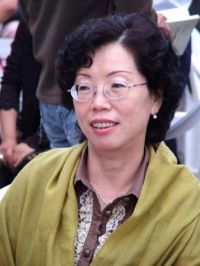Misty Poetry
In the early 1980s, Chinese poetry gained universal attention for its courage in speaking for the people and life challenges. It was profuse in its spirit of innovative ideas and artistic methods. For instance, Ai Qing's Zai Langjian Shang (Atop the Wave Crest), Bai Hua's Yangguang, Shui Ye Buneng Longduan (No One Can Monopolize the Sunshine) and Lei Shuyan's Xiaocao Zai Gechang (The Grass is Singing) received avid acclaim from readers. At the same time, "Misty Poetry" also caused wide controversy in poetry circles as its influence expanded.
In December 1978, the inaugural issue of the poetry journal Jin Tian (Today) in Beijing, symbolized the launch of the "Misty Poetry" movement. Representative poets were Bei Dao, Shu Ting, Gu Cheng, Jiang He, Yang Lian and Mang Ke. They shared a viewpoint on the role of poetry in terms of social reality that differed from other mainstream poets, more inclined to reflect on the sentimental world of contemporary people. Representative works include Shu Ting's Zhi Xiangshu (To the Oak) and Bei Dao's Huida (The Answer). Compared with mainstream poetry at that time, "Misty Poetry" reflected a more rebellious streak. As a group of poets born in the 1960s took the lead in the mid-1980s, "Misty Poetry" gradually retreated, replaced by "poetry of the third generation."
The publication in 1985 of two consecutive volumes of Xin Shichao Shixuan (Selection of China's Post-1980s Poetry) collected almost all representative works of "Misty Poetry" and subsequent new poetry.
